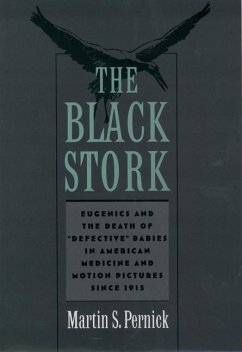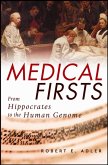In the late 1910s Dr. Harry J. Haiselden, a prominent Chicago surgeon, electrified the nation by allowing the deaths of at least six infants he diagnosed as "defectives." He displayed the dying infants to journalists, wrote about them for the Hearst newspapers, and starred in a feature film about his crusade. Prominent Americans from Clarence Darrow to Helen Keller rallied to his support. Martin Pernick tells this captivating story--uncovering forgotten sources and long-lost motion pictures--in order to show how efforts to improve human heredity (eugenics) became linked with mercy killing, as well as with race, class, gender and ethnicity. It documents the impact of cultural values on science along with the way scientific claims of objectivity shape modern culture. While focused on early 20th century America, The Black Stork traces these issues from antiquity to the rise of Nazism, and to the "Baby Doe," "assisted suicide" and human genome initiative debates of today.








